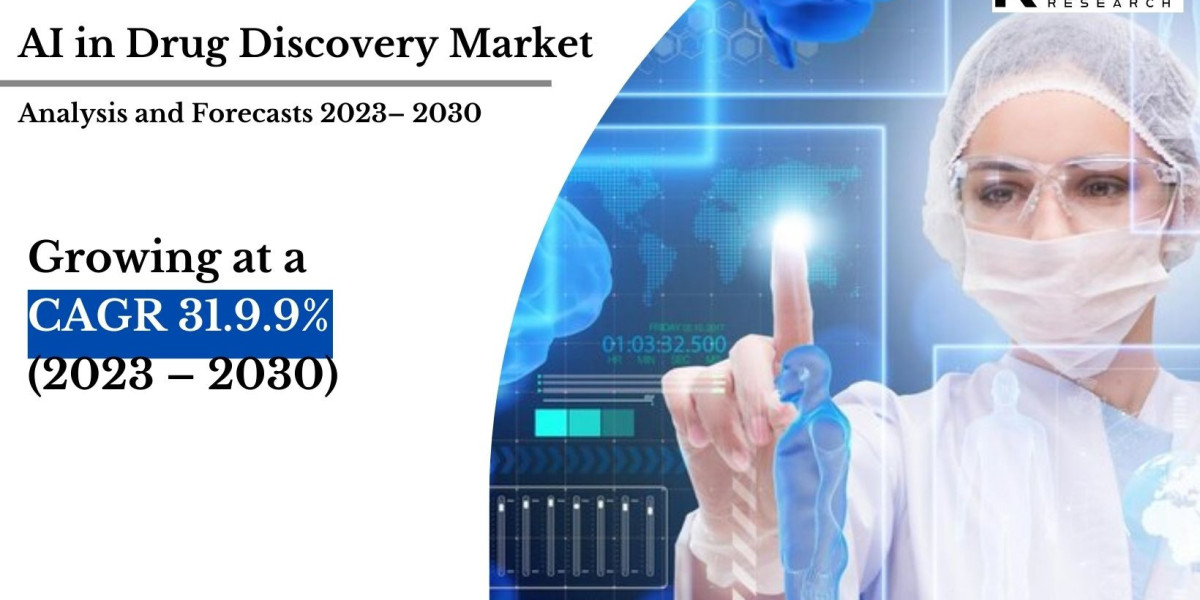The global AI in drug discovery market is poised for unprecedented growth, with its value expected to surge from USD 4.07 billion in 2022 to USD 36.06 billion by 2030, growing at an impressive CAGR of 31.94% from 2023 to 2030. This remarkable expansion reflects the transformative impact of artificial intelligence (AI) on the pharmaceutical industry, driving efficiency, innovation, and significant cost reductions in drug development processes.
Key Drivers of Market Growth
Collaborations and Partnerships: The synergy between AI startups and established pharmaceutical companies is a major catalyst for market growth. Strategic alliances are enhancing the drug discovery process, enabling quicker identification of viable drug candidates. For instance, Recursion Pharmaceuticals' collaboration with NVIDIA, which secured USD 50 million in funding, exemplifies how AI and computational power can accelerate drug development and tackle complex diseases.
Focus on Rare Diseases and Drug Repurposing: AI's ability to analyze vast datasets and identify potential treatments for rare diseases is a game-changer. This capability not only expedites the discovery process but also opens new avenues for drug repurposing, offering hope for conditions that have been difficult to treat traditionally.
Advancements in Computational Methods: Machine learning, deep learning, bioinformatics, and cheminformatics are at the forefront of AI-driven drug discovery. In 2022, the machine learning segment alone generated revenue of USD 2.03 billion, highlighting its critical role in revolutionizing pharmaceutical research.
Growing Adoption of AI and Big Data: The integration of AI and big data analytics in pharmaceuticals is transforming how drugs are discovered and developed. These technologies enable personalized medicine, predictive modeling, and data-driven decision-making, significantly reducing the time and costs associated with bringing new drugs to market.
Regional Insights
North America: Dominating the market with a 43.05% share in 2022, North America remains a leader in AI-driven drug discovery, driven by robust investments in healthcare technology and a strong presence of key industry players.
Asia Pacific: Projected to be the fastest-growing region with a staggering CAGR of 41.59% from 2023 to 2030, Asia Pacific is emerging as a pivotal market. Factors such as increased healthcare investments, a focus on R&D, and a large patient population are propelling growth in this region.
Market Segmentation
- By Component: The software segment held the largest market share at 63.45% in 2022 and is expected to continue its dominance, forecasted to reach USD 21.36 billion by 2030.
- By Therapeutic Area: Oncology is the leading therapeutic area, accounting for 36.87% of the market share in 2022. The application of AI in cancer research is accelerating the discovery of novel treatments and improving patient outcomes.
Strategic Moves by Market Leaders
Leading pharmaceutical companies such as Bayer AG, Novartis International AG, Pfizer Inc., AstraZeneca PLC, GlaxoSmithKline PLC, and others are focusing on mergers, acquisitions, and collaborations to strengthen their market positions. These strategic initiatives are vital for fostering innovation and maintaining competitive advantage in the rapidly evolving AI in drug discovery landscape.
Future Prospects and Innovations
The future of AI in drug discovery is bright, with ongoing innovations promising to further streamline and enhance the drug development process. The in silico approach, which involves virtual drug development and testing, is set to revolutionize the industry by reducing reliance on physical experiments, cutting costs, and accelerating the validation of drug candidates.
As the pharmaceutical industry continues to embrace AI, the market is expected to witness significant advancements, paving the way for more effective and personalized treatments. The integration of AI in drug discovery not only holds the potential to revolutionize healthcare but also to address some of the most pressing medical challenges of our time.















